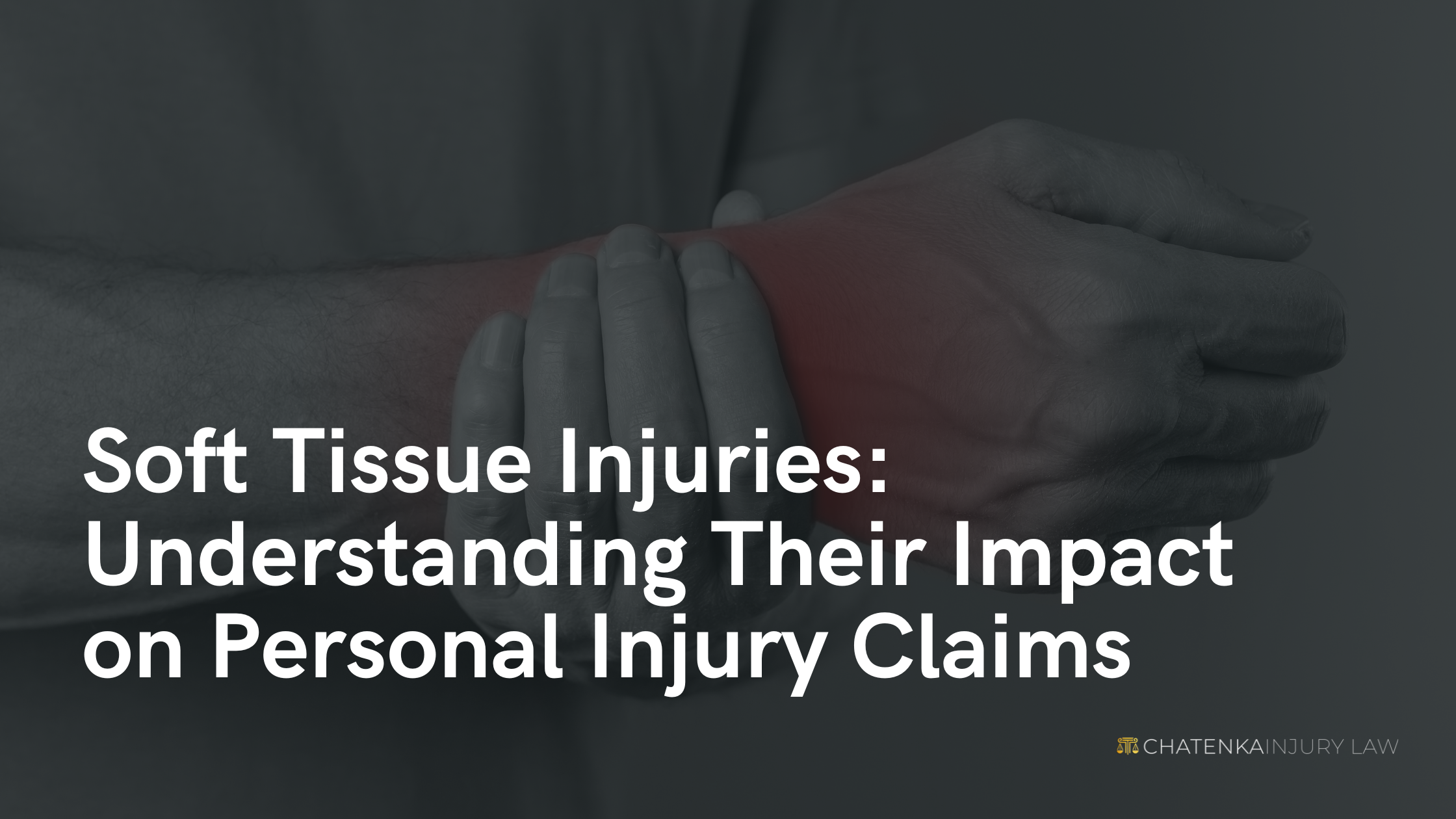Soft Tissue Injuries: Understanding Their Impact on Personal Injury Claims
The Hidden Peril: Soft Tissue Injuries
Soft tissue injuries encompass a range of injuries to muscles, ligaments, and tendons throughout the body. Unlike more visible injuries like broken bones or lacerations, soft tissue injuries can be harder to diagnose and may not manifest symptoms until hours or even days after an accident. This delayed onset can lead to underestimation of their severity, both by the injured party and by those involved in legal proceedings.
Types and Symptoms of Soft Tissue Injuries
Soft tissue injuries can take various forms, including sprains, strains, contusions, and whiplash. Symptoms may include pain, swelling, stiffness, limited range of motion, bruising, and muscle weakness. While some soft tissue injuries may heal with rest and conservative treatment, others can result in chronic pain and long-term disability, impacting the victim's quality of life and ability to work.
Challenges in Diagnosis and Documentation
One of the biggest challenges with soft tissue injuries is accurately diagnosing and documenting them. Unlike a fracture that can be confirmed with an X-ray, soft tissue injuries often require more comprehensive diagnostic techniques such as MRI or ultrasound. Additionally, because symptoms may not appear immediately, there can be a gap in medical records between the accident and the onset of symptoms, which can complicate matters in a personal injury claim.
Legal Implications of Soft Tissue Injuries
Soft tissue injuries can significantly affect personal injury claims, both in terms of compensation and liability. Insurance companies may try to downplay the severity of soft tissue injuries or argue that they are unrelated to the accident, leading to disputes over compensation. Furthermore, without proper documentation and expert testimony, proving the extent of soft tissue injuries in court can be challenging.
Seeking Legal Representation
Given the complexities involved in personal injury claims, especially those involving soft tissue injuries, it's essential for victims to seek experienced legal representation. A knowledgeable personal injury attorney can help gather evidence, navigate the legal process, and advocate for fair compensation on behalf of the injured party.
Advocating for Victims of Soft Tissue Injuries
Soft tissue injuries may not always garner the same attention as more visible injuries, but their impact on victims' lives can be profound. From physical pain and emotional distress to financial hardship, the consequences of soft tissue injuries should not be underestimated. By understanding the seriousness of these injuries and enlisting the help of skilled legal professionals, victims can seek the justice and compensation they deserve in personal injury claims.


